What Buddhist Meditation Isn't

Unlike Buddhist practices, most contemporary Western meditation advocates only talk about and teach only about concentration, Samatha meditation, which is the less important of the two practices. Individuals promoting these meditation practices may have sincere intentions and their teachings may actually provide benefit for the people using those techniques. Many Westerners make statements about meditation as if they are general laws covering all forms of meditation, which actually apply exclusively to their particular meditation practice often for personal monetary gain. There are also many conflicting theories, definitions, and explanations as to the meaning, origin, or actual purpose of meditation.
So in a effort to clear the waters, I have provided explanations to remove some common misconceptions about Buddhist meditation. We see them crop up again and again from new students, the same questions over and over. It is best to deal with these things at once, because they are the sort of preconceptions which can block your progress right from the outset. We are going to take these misconceptions one at a time.
Most systems of meditation emphasize the concentration (i.e., samadhi) component. The meditator is taught to focus the mind upon some single item, such as a prayer, a specific object, a chant, a candle flame, a religious image, etc. The goal is to exclude all other thoughts and perceptions from their consciousness. The result is a temporary state of calm abiding, bliss, or rapture that lasts until the meditator ends the session of sitting. It is beautiful, delightful, meaningful, and alluring, but only a transitory state of being. Insight meditation addresses developing insight into the root causes and cure of dukkha (i.e., suffering), with the goal of permanently extinguishing all of those fires.
Misbelief #1
Meditation is simply a relaxation technique 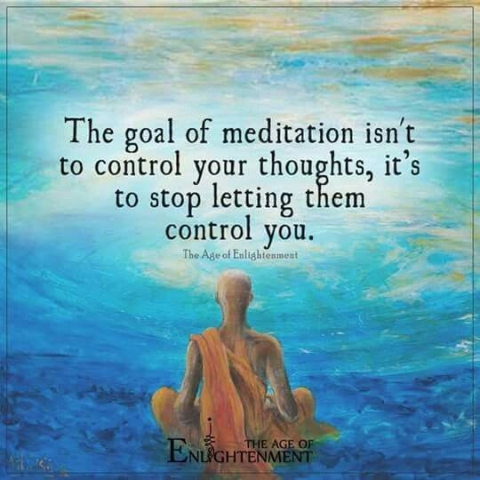
Relaxation is a key component of meditation. However, Buddhist meditation is not about relaxation - it has a much more extensive and subtler goal. Nevertheless, the statement is true for many other systems of meditation. All meditation procedures stress concentration of the mind, bringing the mind to rest on one item or one area of thought. Do it strongly and thoroughly enough, and you achieve a deep and blissful relaxation which is called Jhana. It is a state of such supreme tranquility that it amounts to rapture. It is a form of pleasure which lies above and beyond anything that can be experienced in the normal state of consciousness. Most systems stop right there. That is the goal, and when you attain that, you simply repeat the experience for the rest of your life. Not so with Vipassana meditation. Vipassana seeks another goal – awareness. Concentration and relaxation are considered necessary concomitants to awareness. They are required precursors, handy tools, and beneficial byproducts. But they are not the goal. The goal is insight.
Misbelief #2
Meditation means going into a trance or dream state 
While this could be applied accurately to certain systems of meditation, but not to Insight meditation. Insight meditation is not a form of trance, dreaming, or hypnosis. You are not trying to blank out your mind to become oblivious to reality or into an emotionless vegetable. If anything, the reverse is true. Insight meditation brings you more and more awareness of the present moment and in tune with your own emotional changes. You will learn to know yourself with ever- greater clarity and precision. In learning this technique, certain states do occur which may appear trance-like to the observer. But they are really quite the opposite. In hypnotic trance, the subject is susceptible to control by another party, whereas in deep concentration the meditator remains very much under his own control. The similarity is superficial, and in any case the occurrence of these phenomena is not the point of Insight. As we have said, the deep concentration of Jhana is a tool or stepping stone on the route of heightened awareness. Insight, by definition, is the cultivation of mindfulness or awareness. If you find that you are becoming unconscious in meditation, then you aren't meditating, according to the definition of the word as used in Buddhism. It is that simple.
Misbelief #3
It’s a mysterious practice you cannot understand 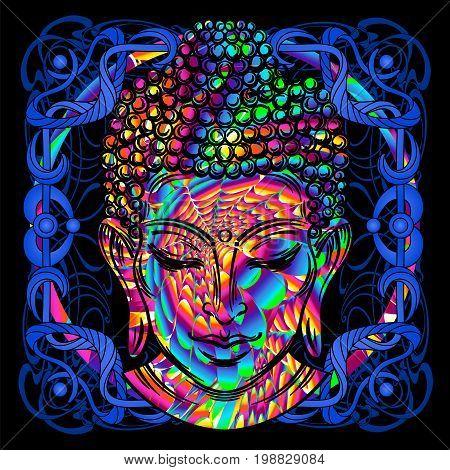
Here again, this is almost true, but not quite. Meditation deals with levels of consciousness which lie deeper than symbolic thought. Therefore, some of the data about meditation just won't fit into words. That does not mean, however, that it cannot be understood. There are deeper ways to understand things than words. You understand how to walk. You probably can't describe the exact order in which your nerve fibers and your muscles contract during that process. But you can do it. Meditation needs to be understood that same way, by doing it. It is not something that you can learn in abstract terms. It is to be experienced. Meditation is not some mindless formula which gives automatic and predictable results. You can never really predict exactly what will come up in any particular session. It is an investigation and experiment and an adventure every time. In fact, this is so true that when you do reach a feeling of predictability and sameness in your practice, you use that as an indicator. It means you are no longer meditating; that you have gotten off the track somewhere and you are headed for stagnation. Learning to look at each second as if it were the first and only second in the universe is most essential in Insight meditation.
Misbelief #4
The purpose of meditation is to gain psychic abilities 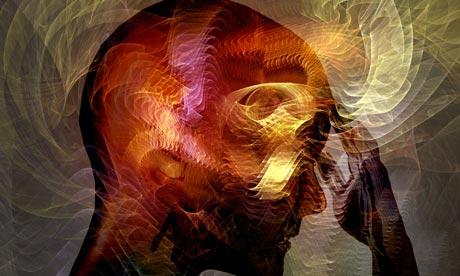
No, the purpose of Insight meditation is to develop awareness. Learning to read minds or foretell the future is not the point. Levitation is not the goal. The goal is liberation. There is a link between psychic phenomena and meditation, but the relationship is somewhat complex. During early stages of the meditator's journey, they may experience inexplicable phenomena that might feel psychic. However, these are simply transitory emotions, not reliable psychic abilities. Nor should they be given undue importance. Such phenomena are in fact fairly dangerous to new meditators in that they are too seductive. They can be an ego trap that can lure you right off the track. Your best advice is not to place any emphasis on these phenomena. If they come up, that's fine. If they don't, that's fine, too. It's unlikely that they will. Don't worry about it. Just concentrate on developing more and more awareness of the present moment. If voices and visions pop up, just notice them and let them go. Don't get involved.
Misbelief #5
Meditation is a form of religious prayer to a god 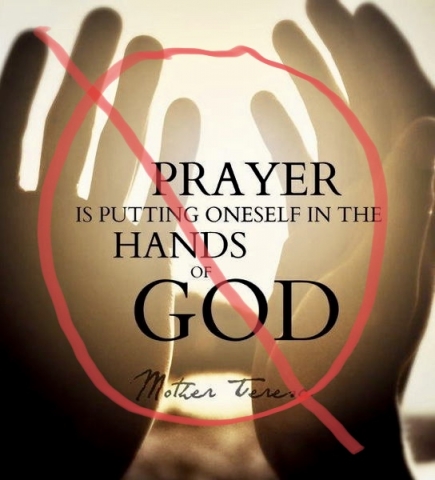
This again is totally false idea. Praising a god, praying for forgiveness of sins, asking god to provide material wealth, asking for salvation - these have nothing to do with Buddhism. Buddha is not considered to be a god by Buddhists. There is no god in Buddhism. Buddhists do not pray to Buddha or ask others to provide or forgive them. Insight meditation is not about looking outside oneself to divine or imaginary third party. It is all about looking inside oneself focusing on three integral factors - morality, concentration, and wisdom. Those three factors grow together as your Insight meditation practice deepens. Each one influences the other, so you cultivate the three of them together, not one at a time. When you have the wisdom to truly understand a situation, compassion towards all the parties involved is automatic, and compassion means that you automatically restrain yourself from any thought, word, or deed that might harm yourself or others. Thus your behavior is automatically moral. It is this insightful introspection and that leads to incisive wisdom of oneself and the reality of impermanence and interdependence of all things.
Misbelief #6
Meditation is running away from reality 
Incorrect. Meditation is running into reality. It does not insulate you from the pain of life. It allows you to delve so deeply into life and all its aspects that you pierce the pain barrier and you go beyond suffering. Insight is a practice done with the specific intention of facing reality, to fully experience life just as it is and to cope with exactly what you find. It allows you to blow aside the illusions and to free yourself from all those polite little lies you tell yourself all the time. What is there is there. You are who you are, and lying to yourself about your own weaknesses and motivations only binds you tighter to the wheel of illusion. Insight meditation is not an attempt to forget yourself or to cover up your troubles. It is learning to look at yourself exactly as you are. See what is there, accept it fully. Only then can you change it.
Misbelief #7
Meditation is a great way to get high 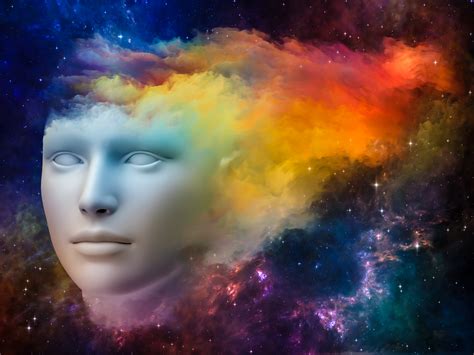
Well, yes and no. Meditation does produce lovely blissful feelings sometimes. But they are not the purpose, and they don't always occur. Furthermore, if you do meditation with that purpose in mind, they are less likely to occur than if you just meditate for the actual purpose of meditation, which is increased awareness. Bliss results from relaxation, and relaxation results from release of tension. Seeking bliss from meditation introduces tension into the process, which blows the whole chain of events. It is a Catch-22. You can only have bliss if you don't chase it. Besides, if euphoria and good feelings are what you are after, there are easier ways to get them. They are available in taverns and plants and mushroom around the world. Euphoria is not the purpose of Insight meditation. It will often arise, but is to be regarded as a by-product. Still, it is a very pleasant side-effect, and it becomes more and more frequent the longer you meditate. You won't hear any disagreement about this from advanced practitioners.
Misbelief #8
When you meditate, you are thinking lofty thoughts 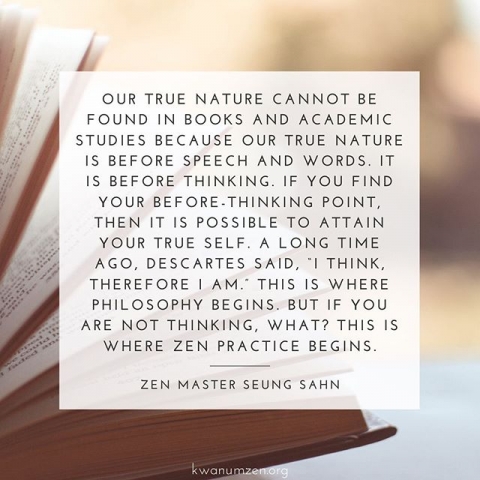
Wrong again. There are meditation practices that engage in this type of contemplation. But not Insight. As previously stated, meditation is the practice of developing the individual meditator’s awareness of the present moment. Awareness of whatever is there, be a it lofty truth or a trivial lie. What is there is there. Of course, you may experience hghly elevated aesthetic thoughts during your practice. They are certainly not to be avoided. Neither are they to be sought. They are just pleasant side-effects. Insight is a simple practice. It consists of experiencing your own life events directly, without preference and without mental images attached to them. Insight meditation is about observing your life unfold from moment to moment without biases. What comes up comes up. It is very simple.
Misbelief #9
Two weeks of meditation and all my problems evaporate 
Sorry, meditation is not a quick cure-all. You will start seeing changes right away, but really profound effects are years down the line. That is just the way the universe is constructed. Nothing worthwhile is achieved overnight. Meditation is tough in some respects. It requires a long discipline and sometimes a painful process of practice. At each sitting you gain some results, but those results are often very subtle. They occur deep within the mind, only to manifest much later. And if you are sitting there constantly looking for some huge instantaneous changes, you will miss the subtle shifts altogether. You will get discouraged, give up and swear that no such changes will ever occur. Patience is the key. Patience. If you learn nothing else from meditation, you will learn patience. And that is the most valuable lesson available.
